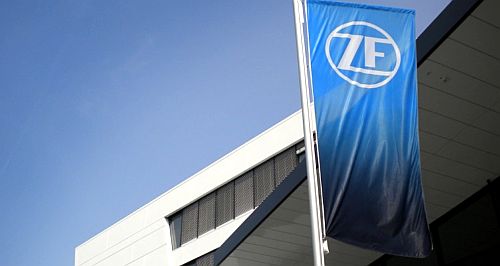Make / Model Search
News - General News - ManufacturingEuropean parts sector heading southCutting costs – and jobs – a priority for many European automotive component suppliers6 Oct 2025 STAFF layoffs, cost cutting, wage freezes and bankruptcies are impacting European automotive parts suppliers amid a local drop in demand for internal combustion engine components, slower than expected growth in battery electric vehicle sales and cheaper Chinese components, to say nothing of cyberattacks, tariffs and poor investments.
The situation is exemplified by increased bankruptcies and the number of job cuts underway or planned at some of Europe’s most highly regarded and long-established parts manufacturers.
Among them are ZF Friedrichshafen, which has announced it will cut 7600 people from its workforce with a further 6400 job losses planned by the end of the decade, and Robert Bosch with 18,500 planned jobs cut from its mobility division and automated driving unit.
Continental plans to shed some 10,150 research and development jobs in Germany and abroad with plant closures in Hesse (Germany) while Schaeffler, the maker of high-precision bearings, components, and systems for various industrial and automotive applications plans to shed 4700 workers – more than half of which are in Germany – by 2029.
Referring to analysis by Bloomberg, Automotive News reports that including job losses at Volkswagen, Audi, and Porsche, the German auto industry alone is expected to eliminate nearly 100,000 jobs by 2030.
Meanwhile, supplier bankruptcies are on the increase in Germany driven by a weak market, high costs and Chinese competition.
“Bankruptcies among German suppliers are climbing sharply, with 30 per cent more expected in 2025 compared with last year, according to a report from consultancy Falkensteg,” reported Automotive News.
“Between January and August, Falkensteg recorded 36 supplier bankruptcies, up from 33 the previous year. The report tracked suppliers with revenue of at least €20 million ($A35.5 million) until 2024.
“In the second quarter, the automotive supply and electrical engineering industries each recorded 11 corporate insolvencies, the highest number across all sectors, according to the survey, which was reported in Automotive News sister publication Automobilwoche.
In the first quarter, 18 supplier bankruptcies were registered.
“Suppliers are struggling despite the growth of the EV market because most of that growth is occurring in China, where competition with local suppliers is fierce, as is the pace of innovation,” said Gartner analyst Pedro Pacheco.
“In the Chinese market, things happen a lot faster in terms of development speed and how quickly OEMs move,” he exlpained.
“If you want to play big in that market, you need to catch up with several suppliers already operating there.”
Western automotive suppliers need to tap more into the Chinese market to increase production and sales, thereby generating economies of scale and lowering costs.
However, Mr Pacheco said this was "harder to do when you have to develop technologies you still don’t have”.
ZF Friedrichshafen’s predicament is similar elsewhere in the German and broader European automotive parts manufacturing sector as moves are made to increase “restructuring” efforts to deal with poor demand.
The company’s electric vehicle drive division is its biggest in terms of jobs and sales, employing about 30,000 workers who produce battery electric, hybrid and internal combustion drive systems and components.
Automotive News says the unit will halt development of BEV-related products while shifting investments to technologies including plug-in hybrid drivetrains.
“We need to get through this,” CEO Mathias Miedreich said in a press conference on October 1.
“It’s a joint effort to make our products more competitive on the cost side and also to lift revenues.”
In order to cut costs, ZF is considering purchasing electric motors and inverters, products it has so far been making in house, potentially from Chinese suppliers.
ZF is searching for partnerships but Mr Miedreich said he would prefer manufacturing co-operations over buying components in order to save jobs.
Chinese suppliers in Europe are one option for such partnerships, ZF said.
Unions have apparently signed off on ZF’s staff reductions, which are part of a previously announced plan to let go of as many as 14,000 workers this decade.
ZF also has under consideration additional savings measures through delaying wage increases and reducing working hours in Germany in the expectation of slashing more than €500 million ($A889 million) in costs by 2027.
Privately held ZF, which is 94 per cent-owned by the Zeppelin trust fund operated by the city of Friedrichshafen, has been struggling for a while.
According to Automotive News, the company last month ousted its CEO Holder Klein days after he met with German Chancellor Friedrich Merz at the Munich motor show.
Mr Miedreich, a former head of ZF’s electrified drive division, took over as CEO on October 1.
The company’s fortunes have turned south following a string of costly acquisitions in the past decade that turbocharged debt including the $7 billion takeover of US braking systems specialist Wabco Holdings in 2020.  Read more |
Click to shareGeneral News articlesResearch General News Motor industry news |











Facebook Twitter Instagram